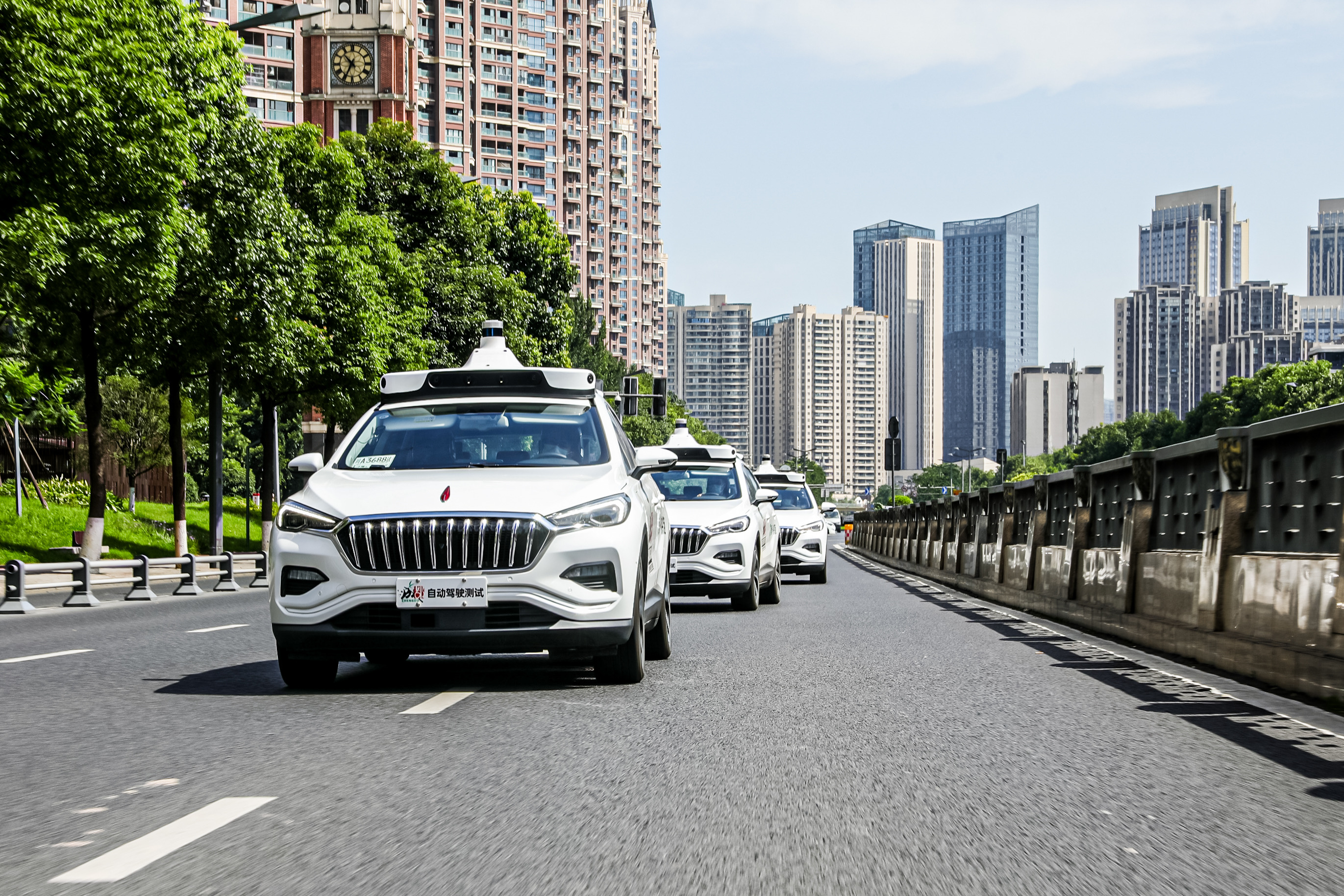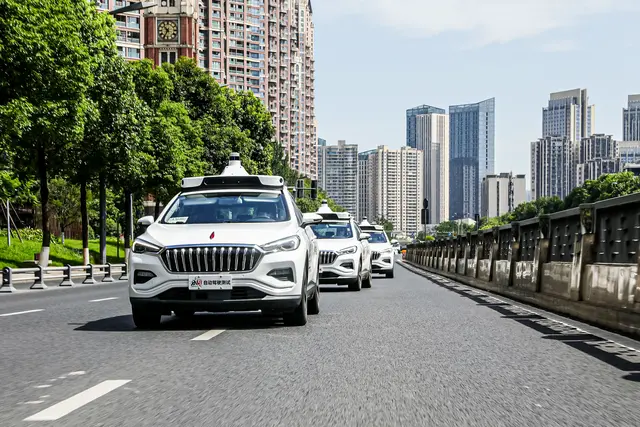Chengdu in Sichuan province is becoming a smart city thanks to its fast development of next-generation information technologies such as the internet of things, cloud computing, big data and artificial intelligence.
Street lamps are the most common infrastructure upgrades in modern roads and alleys. During the Beijing 2022 Winter Olympics, the street lights developed by Chengdu-based companies showed off their smart functions and provided intelligent services.
Chongli district of Zhangjiakou in Hebei province was one of the three competition areas of the Beijing 2022 Winter Olympics. On both sides of the roads leading to the core competition area, Sichuan Huati Lighting Technology deployed and connected 2,539 smart street lights.
In addition to providing basic lighting services, these smart street lights are also equipped with Wi-Fi, LED information display screens, new energy charging piles, solar photovoltaic power generation energy storage devices and many other internet of things devices with functions such as 5G communications, environmental monitoring and smart transportation.
The smart street lights that appeared in the Winter Olympics also serve Chengdu. Taking the smart light pole as its starting point, Huati Technology has developed various new scenarios and services for smart cities. Its smart roadside parking system has been piloted in Chengdu's Shuangliu district and other places. Its smart greenway system has also been applied in Chengdu Jincheng Greenway among many other areas.
Under the construction of a smart city, intelligent products and smart city applications are being implemented in Chengdu, improving production and people's lifestyles.
In the Singapore-Sichuan Hi-tech Innovation Park of the Chengdu high-tech zone, the first group of eight unmanned taxis has been put into manned demonstration operation since July, providing the public with an intelligent driving experience.
Driverless taxis are operated within a 10-square-kilometer area in the Singapore-Sichuan Hi-tech Innovation Park, providing services for commuting and short-distance connections for citizens in the area.
"The taxis are developed based on Baidu's self-developed Apollo driving open source platform, which adopts the industry's most advanced autopilot kit and AI technology," said Du Yu, deputy general manager of the Sichuan business department of Baidu's intelligent transportation, adding that the fusion perception algorithm of the sensor allows the vehicle to accurately gauge the surrounding environment and perform corresponding operations through an AI algorithm. The project brought intelligent infrastructure transformation to the roads within 10 sq km in the Singapore-Sichuan Hi-tech Innovation Park, which are about 30 kilometers in one direction.
A number of technological innovations have been achieved through the construction of intelligent infrastructure for road coordination and C-V2X networks, the development of software and hardware for vehicle-road coordination applications, and the research and development of MaaS (mobility-as-a-service) platforms. In Chengdu's Xindu district, Micronet Union Technology (Chengdu) Co Ltd and China Mobile jointly built the first 5G Smart Factory Demonstration Base in Sichuan, creating a new pattern of digital smart manufacturing.
The base has deployed multiple smart 5G applications such as industrial quality inspection, logistics, monitoring, 5G and virtual reality teaching and 5G plus product traceability. At the same time, it worked with the dual engines of the industrial internet and deeply integrated the automated production line to realize manufacturing in the field.
According to an executive of the company, the application of automation technology combined with the "multiplier" of 5G technology has equipped the factory with a "smart brain", making it a 5G factory that can truly think for itself.
The application of 5G in the microgrid smart factory has realized the automatic production of integrated circuits. The production efficiency has increased by 40 percent compared with the traditional process, and the equipment failure rate has been reduced by more than 25 percent.
The upgrading of intelligence has also been seen in the agricultural field. In the Grain and Oil Modern Agriculture Park of Dayi county, Chengdu, the "drone plus smart agriculture" digital management service scenario provides farmers with all-around, one-stop services such as farm management, situation monitoring, material purchasing, machinery operations, financial services and grain sales.
Unmanned aerial vehicles' aerial photography, high-definition cameras and other IoT devices are used to monitor various indicators such as the environment and growth cycle of crops, from irrigation to soil variation, to pests and bacteria that are invisible to the naked eye.
It relies on the digital agricultural service platform and big data analysis to function. When problems are found, they can be fed back to growers who have settled on the platform through a mobile app, where agricultural professionals can then address and solve the various problems.
The construction of a smart city depends on sound digital infrastructure as support. The Chengdu 14th Five-Year New Smart City Construction Plan issued in June proposes that the city should focus on building strong urban smart infrastructure, a data resource system and a digital enablement platform.
As the first national-level supercomputing center completed and put into operation in the western region, the Chengdu Supercomputing Center located on the bank of Xinglong Lake will use its powerful computing power to help with Chengdu's smart city construction.
The Chengdu Intelligent Computing Center, launched in May this year, will also help the industry develop and improve the lives of Chinese citizens. As the largest AI computing center in Southwest China, the center will build a world-leading cloud service center, which will also feature the establishment of the National New Generation Artificial Intelligence Innovation Experimental Zone and the National Artificial Intelligence Innovation Application Pilot Zone in Chengdu. Together, they aim to create a national benchmark for the application of AI in the fields of medical care, remote sensing and finance, while serving thousands of industries.
Chengdu also established the Smart Chengdu Domain IoT Sensing Center in July.
The establishment of this center is at the forefront of the country and the construction of the smart city perception system.
In the future, Chengdu will build a citywide neural network that interconnects everything through sensing terminals, communication networks and management platforms to sense the main vital signs of the city in real time and improve the city's ability to perceive, judge and respond quickly.

The first Artificial Intelligence International Hub in western China is located in Chengdu, Sichuan province. CHINA DAILY

Autonomous cars conduct a test run on a road in Chengdu. CHINA DAILY
(APD)
 简体中文
简体中文



